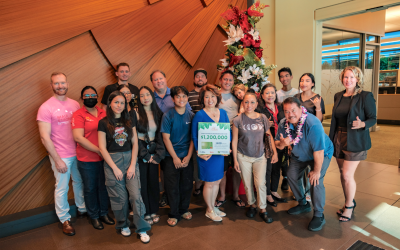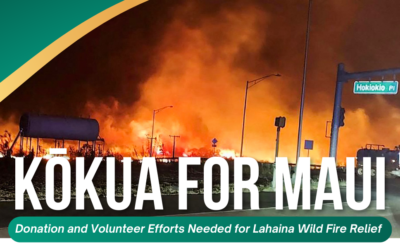As Employers, you need to keep a safe workplace for your staff as well as your guests. HIOSH is the department that inspects and enforces OSHA rules and regulations here in Hawaii. HIOSH covers facilities from the huge food and construction facilities, to the little corner restaurant. Your management team is responsible for employee safety. When your operation gets a visit from HIOSH, any violations they observe may result in some hefty fines. And just to make it even more critical, fines for violations increase every year!! https://labor.hawaii.gov/hiosh/main/increased-hiosh-penalties-january-15-2021/
But the bigger reason for following these rules is to keep your staff and guests safe.
The first step is to have a written plan that covers all hazards in you operation, and it needs to be available to your staff and inspectors. There is good information on the entire HIOSH program that is found here. https://labor.hawaii.gov/hiosh/files/2013/01/HIOSH_Handbook_Rev-2015.pdf
Key parts of your program include Hazard Communication and Staff Training. All chemicals in your operation – including items you can use in your home – must have a Safety Data Sheet (SDS) These SDS must be located in a designated spot where all staff can review and refer to a chemicals use. SDS have 16 parts, and the ones we usually work with are the ones that refer to proper storage, use, Personal Protective Equipment that is needed to be used, and 1st Aid. Some chemicals cannot be stored near others due to possible flammability issues. PPE may be needed – usually on Caustic chemicals. Did you know – a common Quat sanitizer does not need PPE when using a dispenser, but when you free pour it, your staff need to have gloves and eye protection? Don’t forget that chemicals transferred to a spray bottle must be labeled. To avoid confusion – I recommend to even label spray bottles with plain water.
The SDS binder needs to be organized so an SDS can be easily found. In an emergency, time wasted leafing thru the book can make a big difference. I recommend to place each chemical into its own clear sleeve in your binder, and to have a table of contents. Pull out all unused, outdated sheets (generally pre-2015), but don’t throw them out!! They need to be archived for 30 years in case there is a lawsuit decades from now due to a long term illness.
There is more to it than just having a nicely organized binder. As part of your documented training for new and current hires, they need to be made aware of the binder, what it is used for, and team members need to be instructed on the use of PPE for each chemical they may use in their duties. For instance – a dishwasher may be assigned to use a chemical that is highly caustic to periodically clean the machine. He or she need to be instructed (documented of course) in how to use the chemical and what PPE must be used. Supervisors have a big part of this safety plan as well. Supervisors need to make sure any PPE is taught, available, in good condition, and always used. Supervisors should also be familiar with the PPE and 1st aid for the chemicals. Lastly, if there is a chemical emergency where someone goes to a medical facility, send the sheets with them. The medical team will know exactly how to handle it.
Is your OSHA 300A from last year posted?? This summary of recordable workplace injuries is required to be posted from Feb 1st thru April 31st every year. If you did not have any incidents last year – GREAT, but you still need to post a blank summary. Contact your insurance if you need help in completing this.
Electrical issues range from blocked circuit breaker panels, uncovered pukas where a breaker was removed in your panel, cord insulation that is torn or pulling away from the plug, or even grounding plugs broken off. These and others are all potential dangers for your staff, and may result in hefty HIOSH fines.
The comments above are overviews, and may not include all details of the regulations, as each facility will have needs specific to them. There are a multitude of other potential issues that HIOSH looks at, and may affect your staffs safety. For more detailed info or a review, contact you Insurance Agent, or contact HISOH to setup a free consultation. Read the details and other information here. https://labor.hawaii.gov/hiosh/




0 Comments